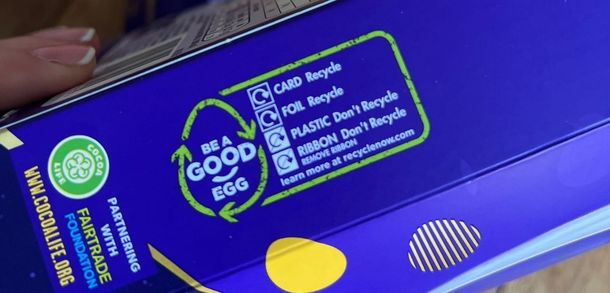

Over 80 million Easter eggs are sold in the UK each year, with the cardboard, foil and Easter cards generating an estimated 8,000 tonnes of waste!
This means that recycling is more important than ever to prevent resources ending up in landfill.
So, be egg-cellent at recycling with our handy tips.
Try to avoid eggs with extra gifts like mugs, soft toys or egg cups that the recipient might not use.
Many manufacturers are starting to use packaging that can be widely recycled. Make sure you check the packaging for recycling information before you buy.
Recycle as much of the packaging as you can in your kerbside collection. This is the most convenient way to dispose of your household recycling.
Try to avoid cardboard boxes with plastic windows. If you receive any, remove the plastic windows before recycling the cardboard box. Check locally whether these types of plastic are accepted in your kerbside collection.
Flatten the cardboard boxes to save space in your kerbside collection box/sack.
Clean foil can be recycled at the kerbside with your metal/cans. Remember to scrunch it into a ball - the bigger, the better!
Depending on your local collection authority, these may be collected at the kerbside. Check whether they are accepted where your live before placing in your plastic collection.
Choose glitter-free cards and recycle in your kerbside collection. Remove any additional decorations, such as ribbons.
If you're gifted flowers, you can add them to your compost bin once they're dead or pop them in your garden waste bin.
Remember that with the additional bank holidays, your usual recycling collection may change, so make sure to check your recycling calendar or local council website for updates.
Six ways to reduce waste at Easter from the BLUEPRINT Project